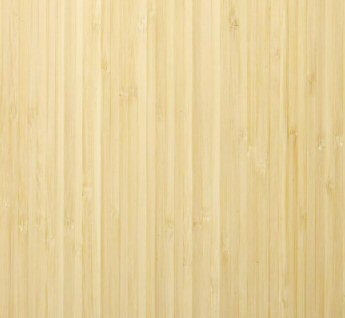Bamboo Counter Tops
Bamboo material, particularly in the form that's used for countertops, looks, feels and responds like wood. To be technically correct however, it's not wood but a form of grass.
Bamboo grows very rapidly and reaches harvestable maturation in 4 to 7 years. Compare that to a hardwood or even an evergreen tree which takes much longer to reach the point where it can provide a useful amount of material. When harvested, the roots of the bamboo plant are also preserved and the same plant will regenerate usable product within another 5 years.
Bamboo is an environmentally friendly choice, since it is a renewable resource, and reasonably attractive. Hot pots and pans can damage bamboo tops if place directly on the countertop.

Advantages & Features
Bamboo is a very hard material. In some cases, it's harder than oak and maple. Bamboo has a unique and attractive appearance and one that's not really replicated in any other type of countertop material. It's available in several different styles (grain orientations) to suit your style.
Bamboo is naturally antibacterial, which makes it a great choice for use in the kitchen. This is the reason bamboo is so popular as a cutting board material. A kitchen countertop is a surface that needs to be suitable as a food preparation surface.
Disadvantage
Compared to other countertop surfaces bamboo has a limited range of "looks". The grain orientations provide a few style options and you can get a carbonized bamboo that's darker than the typical blond colour of bamboo. You run out of options beyond that however. Even though bamboo is a strong material, it’s also important not to cut directly on the counter. Both the counter and the finish can be damaged with a knife.
Bamboo is a lot like wood in that it needs sufficient protection from water. If you install bamboo around wet areas like a sink you'll need to ensure it's well sealed/protected.
Maintenance
It is more likely that the top coat on the bamboo countertop will suffer damage first before the bamboo itself scorches. If you do end up with a scorch mark simply, sand and re-coat, but the strength of the bamboo may be compromised over time. If frequent cutting will be done directly on the countertop, bamboo may not be the best option.
Cleaning these green counters is quite simple. You can keep them clean with warm water and a mild soap. The re-application of a wood sealant is recommended to prevent natural moisture loss.










